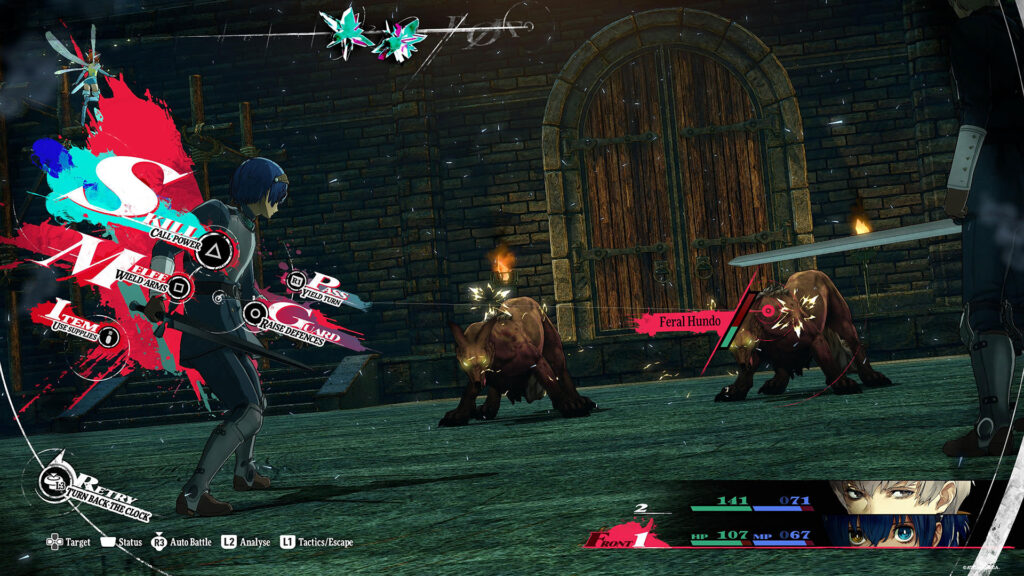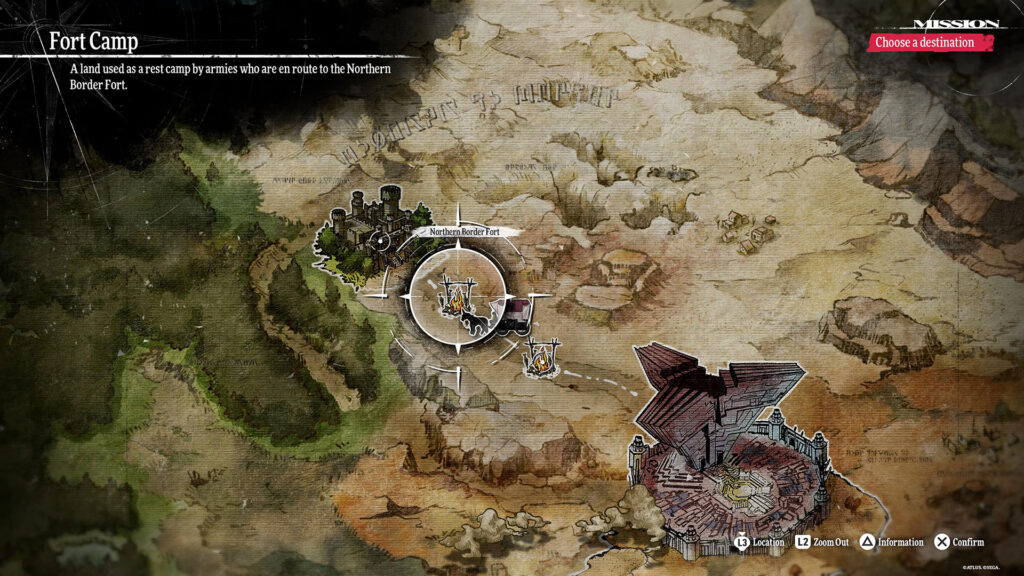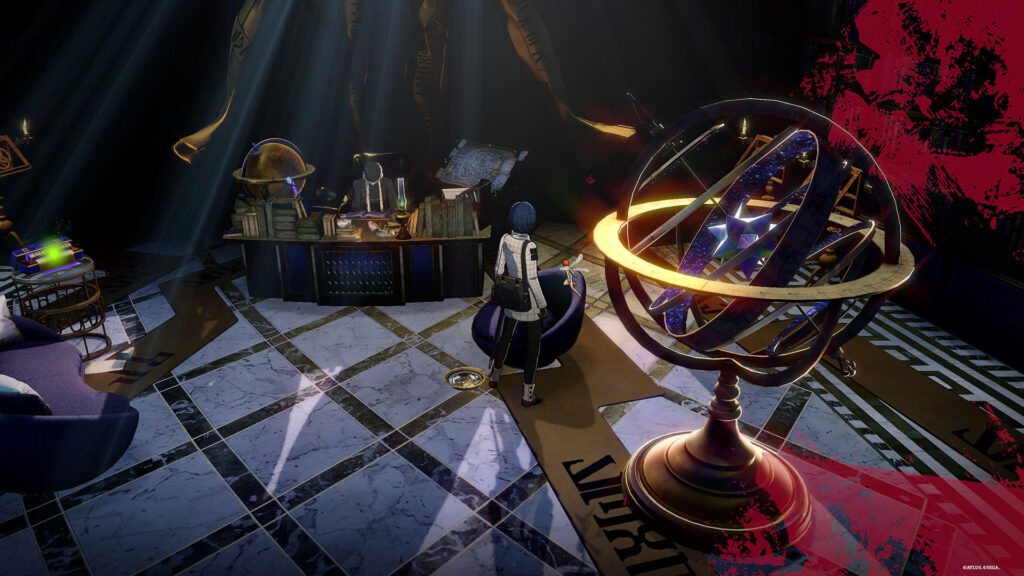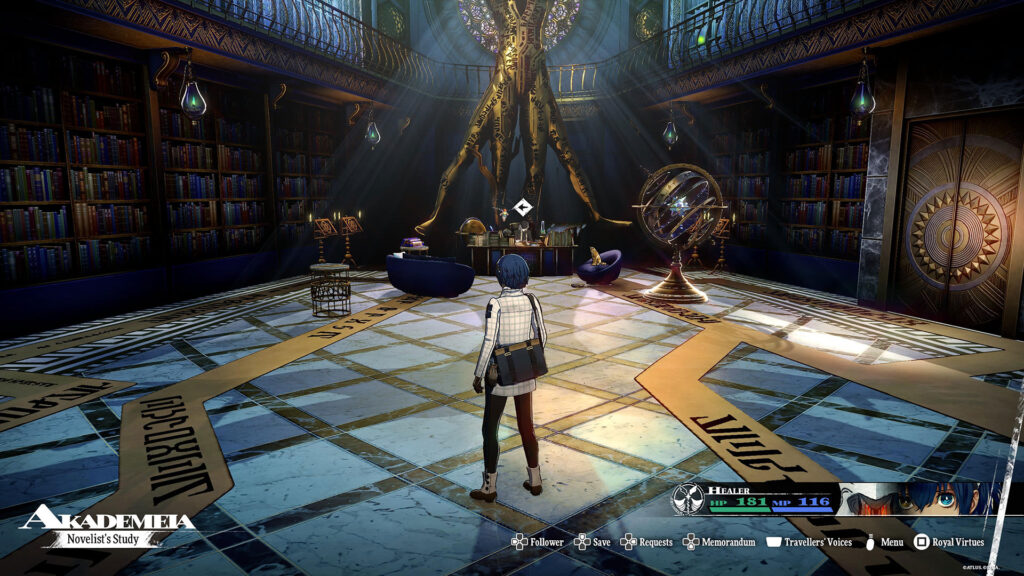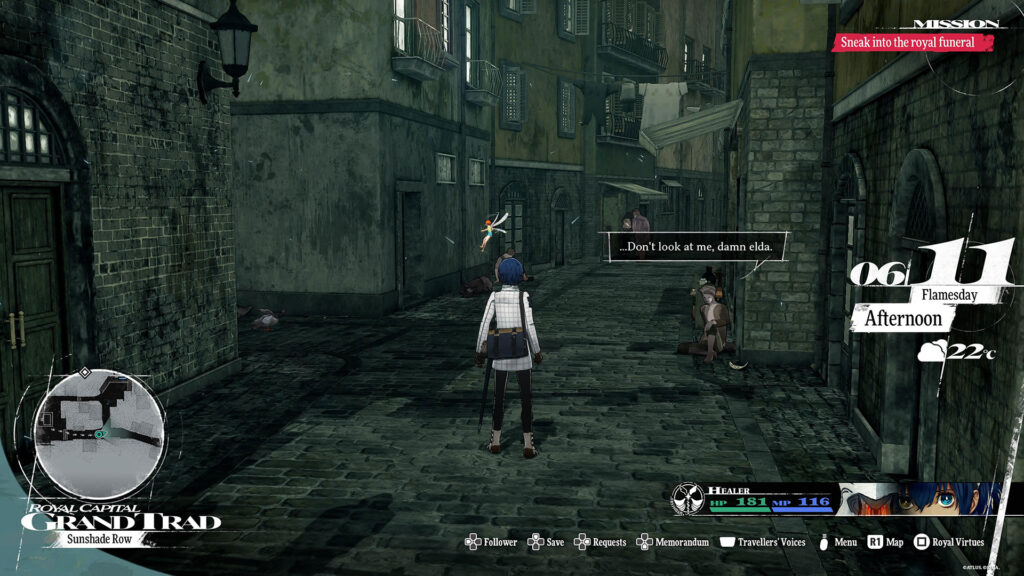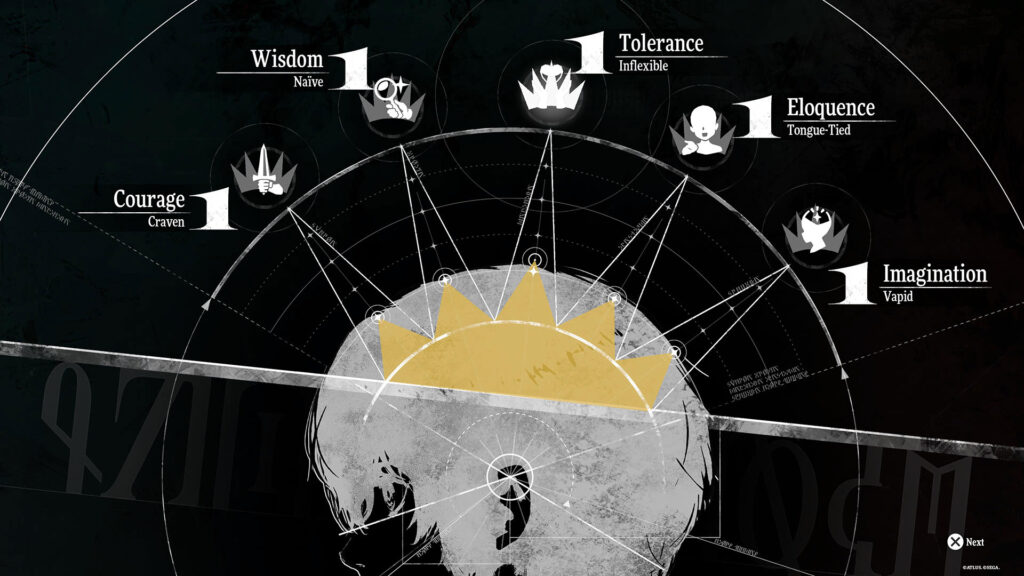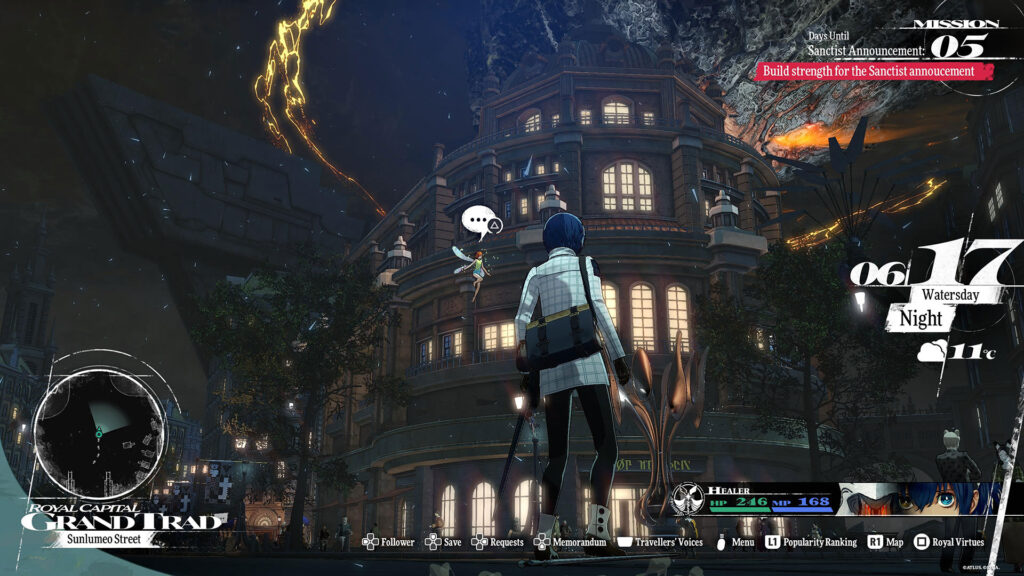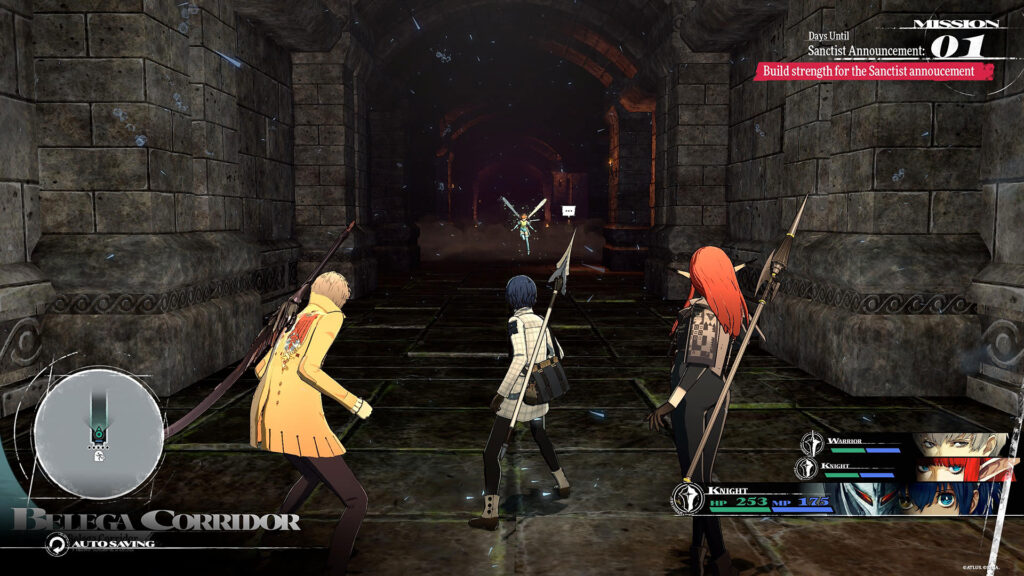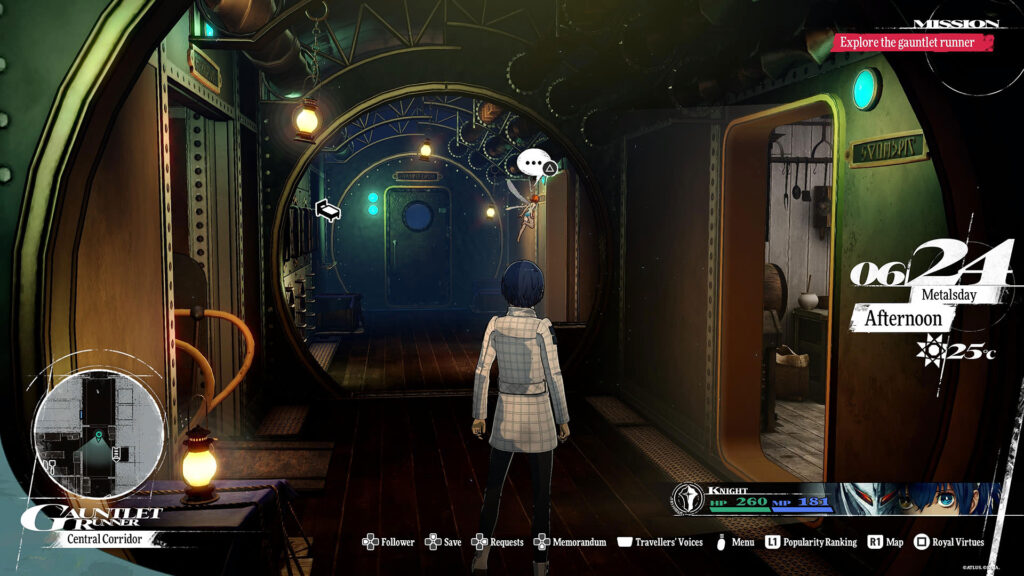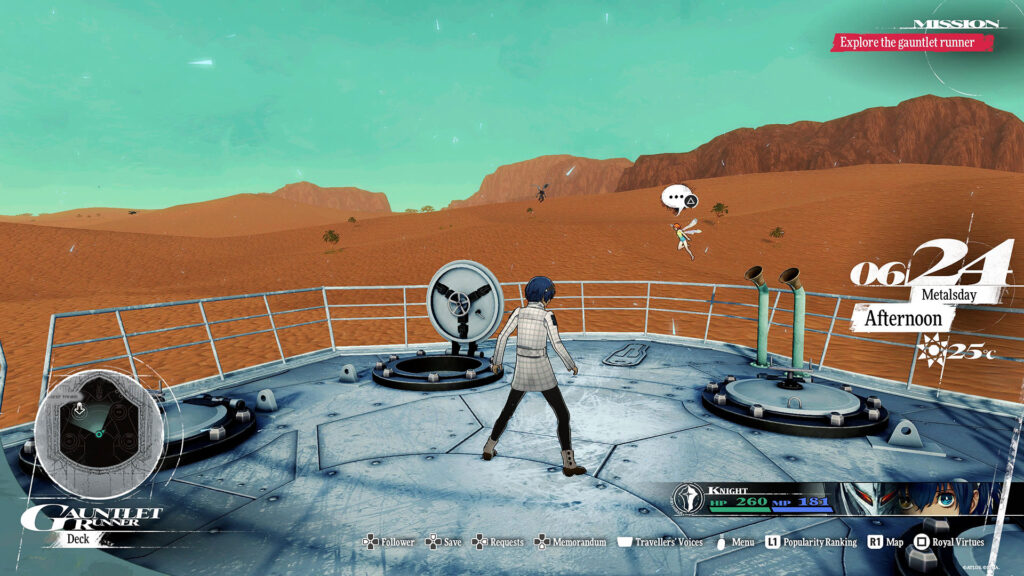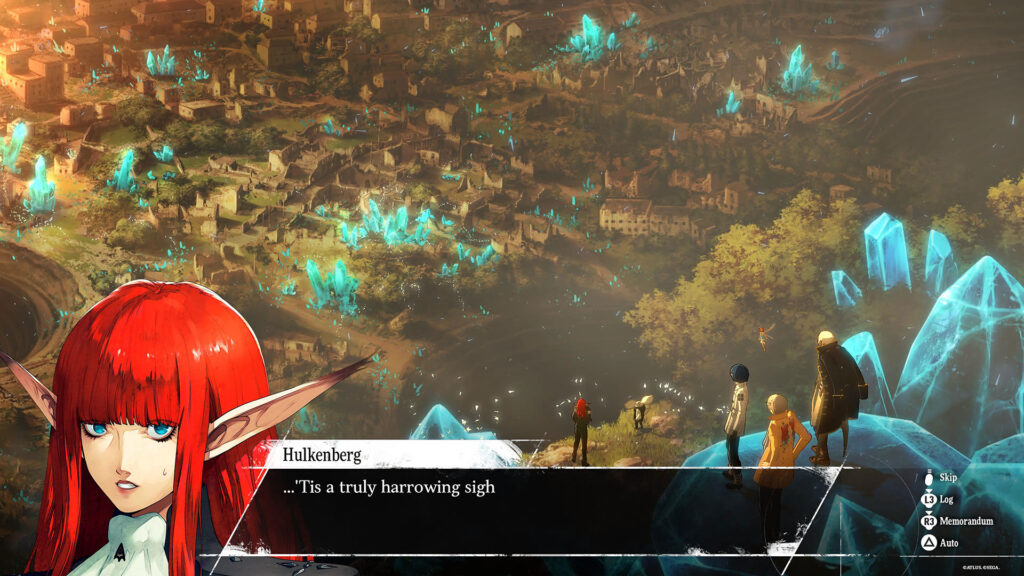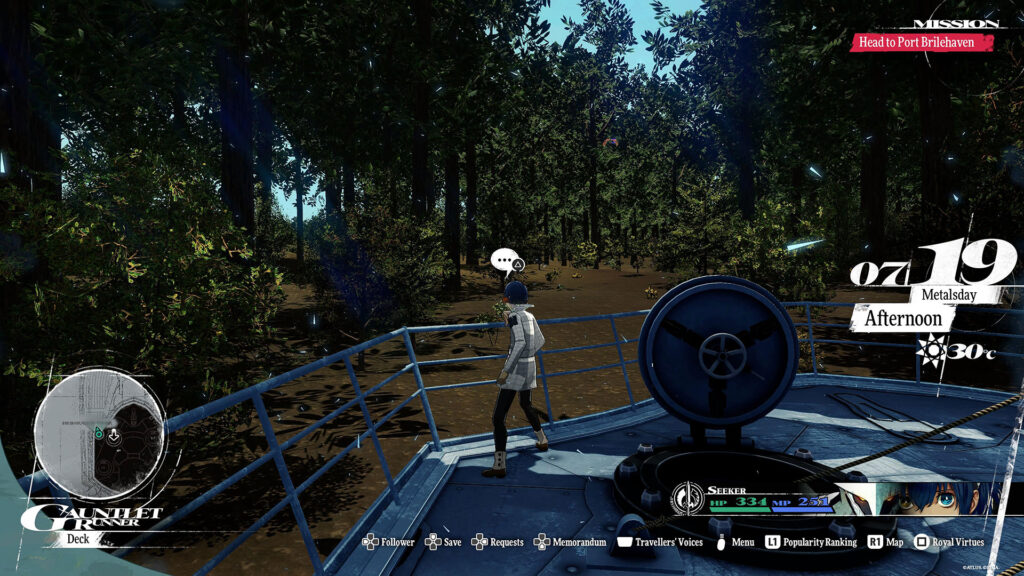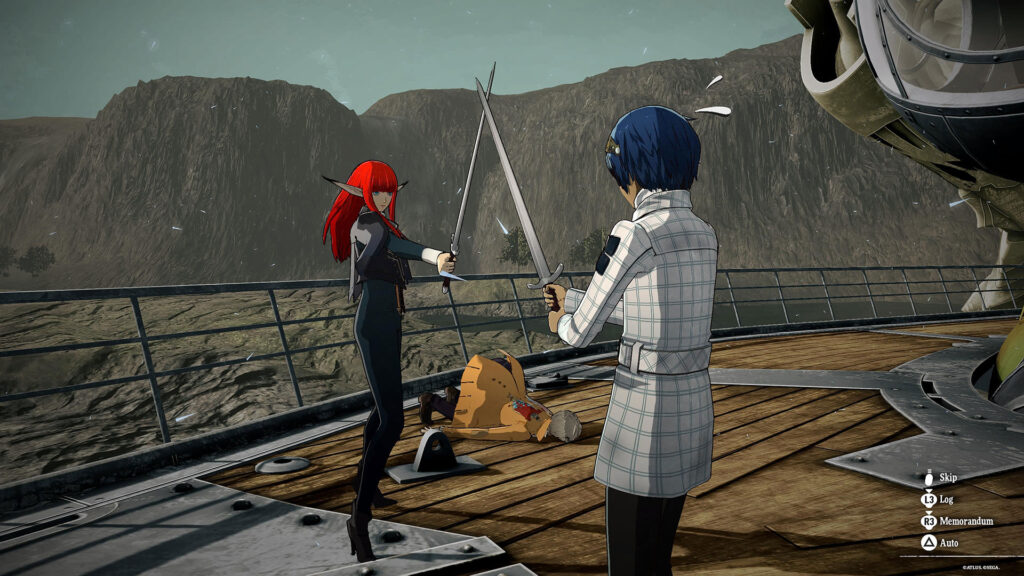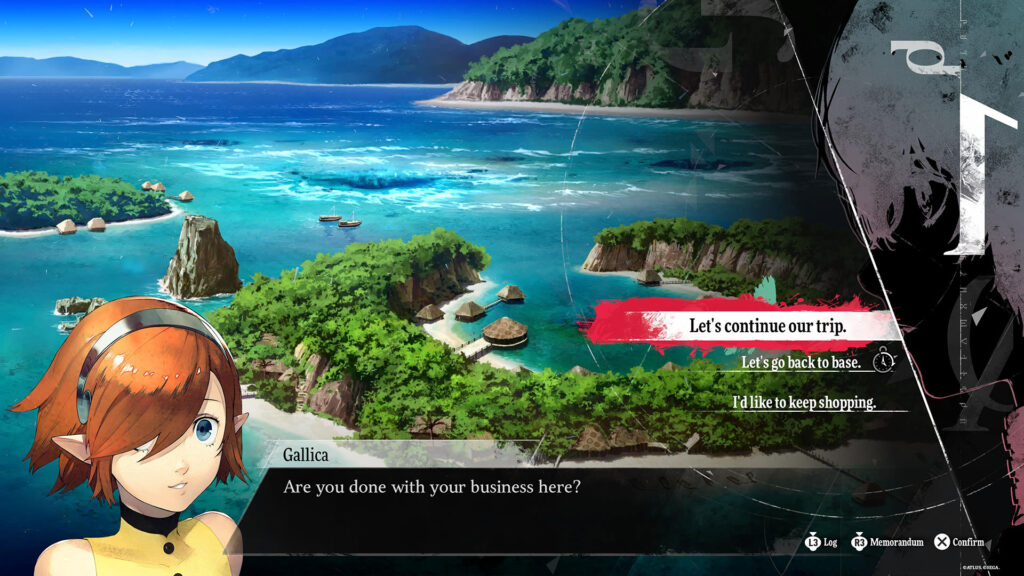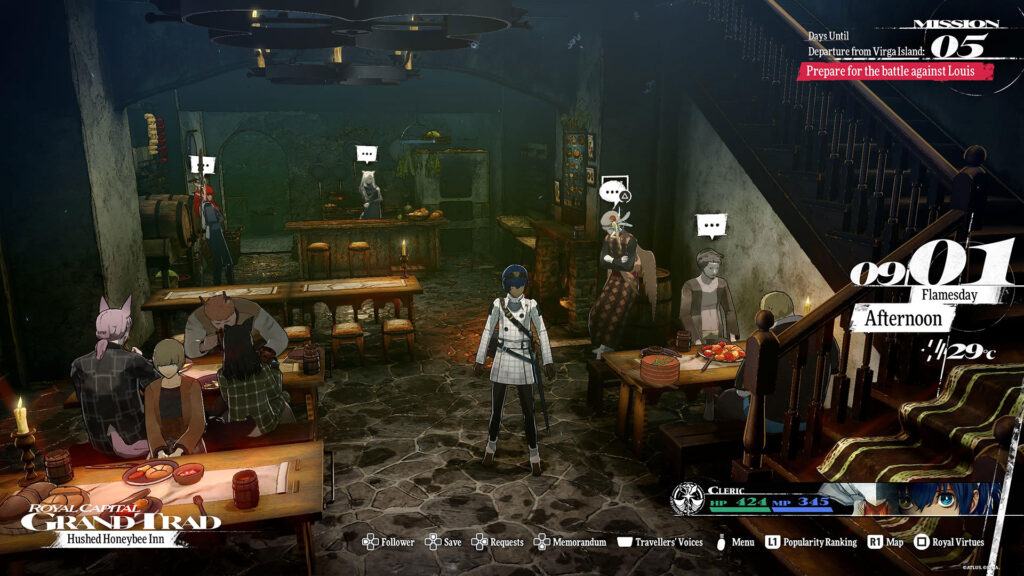Quick Verdict
Metaphor: ReFantazio is one of those rare games that you wish didn’t have to end. Unfortunately, it’s also one of those rare games that forces you to finish playing because there’s an imposed deadline on the calendar. This brilliant RPG from Studio Zero is the evolution of Persona and Shin Megami Tensei that I’ve been waiting for. Ever since its initial debut, Metaphor: ReFantazio has been one of my most anticipated games, and I’m happy to say that after nearly 90 hours of playtime, it somehow managed to exceed my expectations.
It’s an epic adventure with a lovable cast, memorable story, and a properly written villain. Its claim of real-time combat isn’t particularly noteworthy, but the turn-based system shines with the introduction of Archetypes. While the foundation of Metaphor: ReFantazio is clearly Persona, the building blocks that have been layered on top result in a game that’s truly special. If you’re a fan of turn-based JRPGs, I cannot recommend this game more to you.
Fantasy Evolved
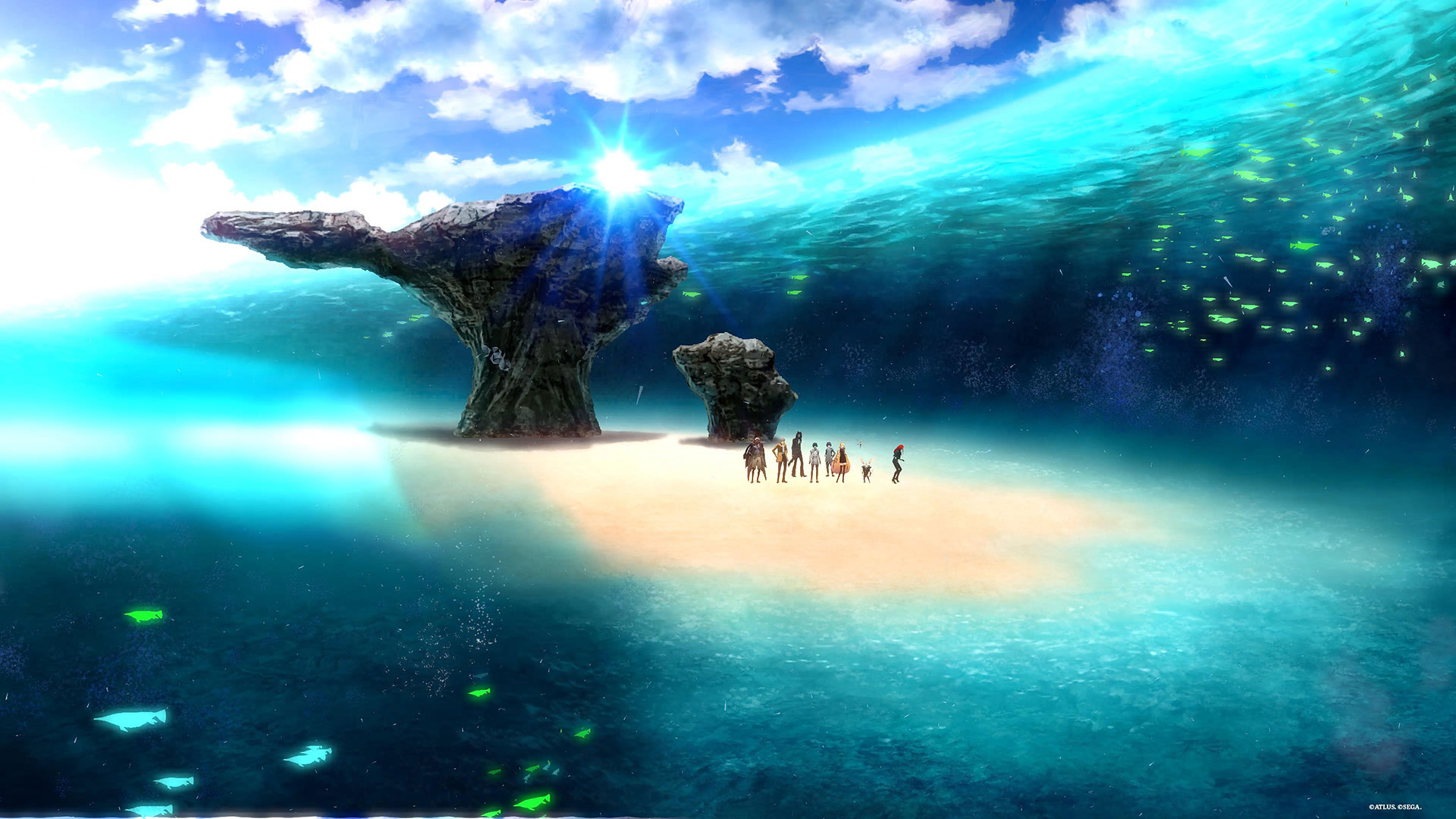
Every once in a while, a game comes along that makes me feel fortunate to have experienced it; a game that encapsulates why I love video games and why I spend so much time convincing others to do the same. It may sound like a cliché, but Metaphor: ReFantazio exemplifies why video games offer a unique experience in the entertainment world. The amount of reading rivals that of a short novel, while the total length of all cutscenes adds up to a single episode of your favorite anime series. Then, layered on top of that is Shoji Meguro’s captivating soundtrack, which envelops you in the atmosphere as only his music can.
What truly sets Metaphor: ReFantazio apart, however, is the interactive journey it offers. Unlike a book, show, or album, it invites you to be more than a spectator—you’re an active participant. You get to shape the story, explore new worlds, and engage with characters, making every decision and battle feel personal. The game pulls together the best elements of various media and blends them into something only gaming can offer: an adventure that is not just observed, but lived.
Here’s the thing: if the idea of reading enough dialogue to fill a short novel or watching cutscenes that amount to a single episode of anime sounds unappealing, Metaphor: ReFantazio might not be the game for you. While it’s a lengthy adventure, it’s well-paced. Some battles can be challenging and frustrating, but the game lets you change the difficulty at any time. Some story beats may be predictable, but they’re delivered by an excellent cast of characters. Those who have played Persona 3, Persona 4, or Persona 5 will feel right at home with Metaphor: ReFantazio, but for those who have never picked up any of those RPGs, it could be overwhelming.
Threads of Destiny
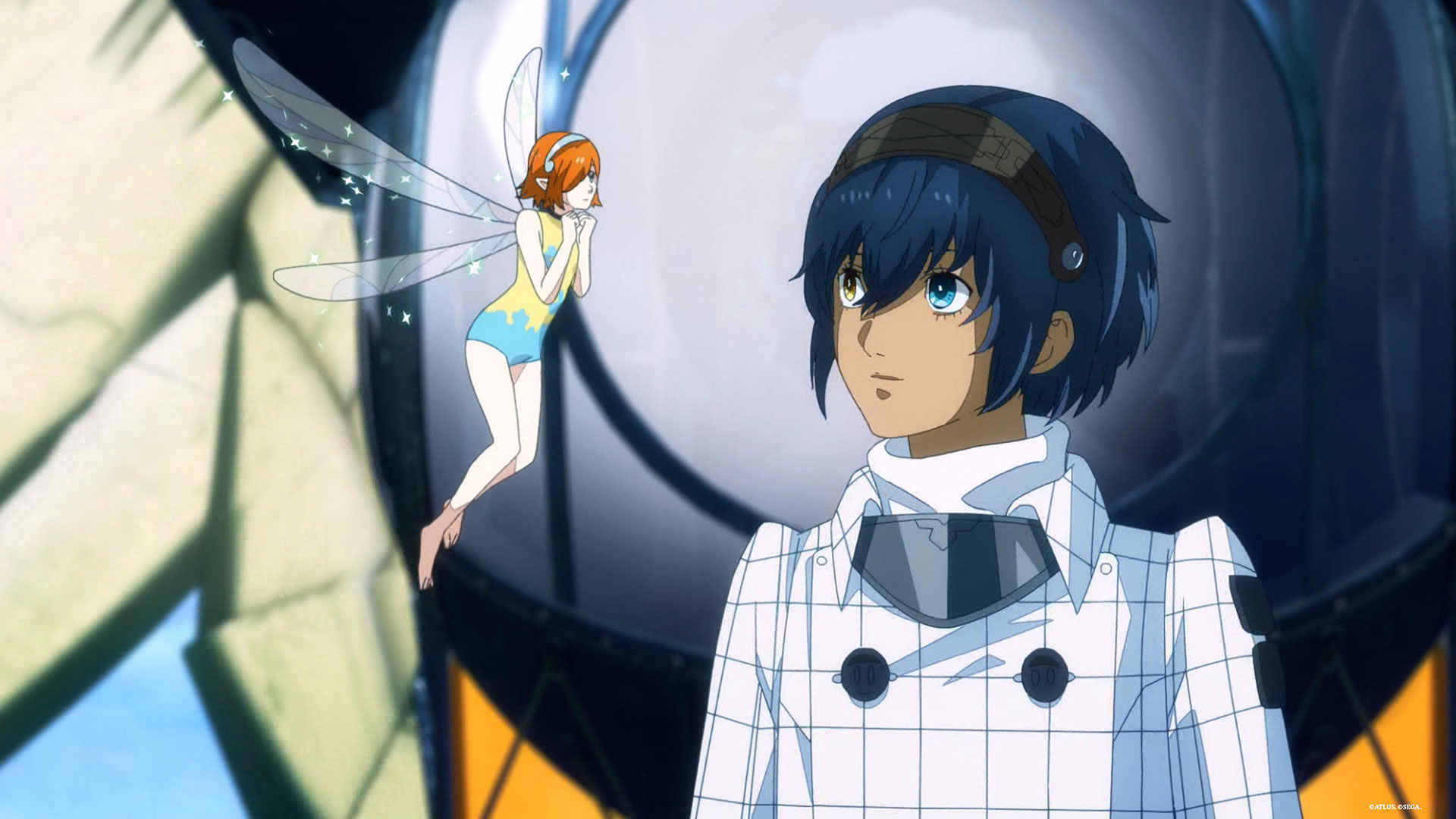
Metaphor: ReFantazio starts off with a lengthy cutscene that sets the stage for the story. A king is slain, a villain is introduced, and the player starts his journey. Set in the Kingdom of Euchronia, Metaphor: ReFantazio follows the story of a bright-eyed, blue-haired protagonist accompanied by the fairy Gallica. He’s a close friend of the prince, who has fallen under a curse, and sets off to the capital, Grand Trad, for a mission. It doesn’t take long to establish that the country is rife with division, both racially and socially, with the protagonist’s race, Elda, being the bottom rung of the ladder. From there, it follows a very traditional RPG path of introducing new characters who join your party as one thing leads to another and your goal becomes clear.
The gameplay loop is nearly identical to a modern Persona game. If you’ve never played one, however, Metaphor: ReFantazio revolves around a live calendar featuring specific deadlines for story missions. A good portion of the gameplay involves strategically planning what you want to do for each day. For most days, you’ll get to choose a daytime activity and a nighttime activity—although if you choose to explore a dungeon, you’ll lose the ability to choose what to do at night if you return to town. Every activity has a benefit, and there are multiple options. You can spend time with other characters to build your relationships, which has a direct impact on the growth of your Archetypes—more on this later—or you can listen to a story or people-watch to enhance personal stats for Courage, Wisdom, Tolerance, Eloquence, and Imagination. You’ll need to focus on everything, really, as certain relationship levels won’t progress until you reach a certain level on a particular stat. Other activities include doing laundry to increase your maximum MP or using an item while taking a bath to improve other combat stats.
Compared to Persona, Metaphor: ReFantazio builds on this formula by giving multiple rewards per activity. For example, sometimes you’ll also earn Reeve (in-game currency) with each activity. The biggest change from Persona, though, is how generous Metaphor: ReFantazio feels with your activities. Spending time with other characters always results in growth, and it’s much clearer just how far away you are from the next level for a personal stat. If you’ve played through Persona games in the past, you likely won’t need a guide to maximize all your relationships in your initial playthrough. If you’re new to the formula, I still recommend doing whatever it is you want to do rather than looking up any sort of guide to follow. Part of the fantasy is being fully immersed in this wonderful world, and if that means neglecting that one person’s story you don’t care much about, so be it. When I completed my first playthrough, there were two relationships I didn’t finish before the end because I chose to spend more time doing laundry than increasing my Imagination stat. It’s also worth mentioning that, unlike Persona games, there aren’t any true romance options in Metaphor: ReFantazio.
The Lost Crown

Building those social links with your companions and other friends you meet along the journey plays a pivotal role in developing your Archetypes. Archetypes are essentially classes or jobs, ranging from Warrior to Mage, and Paladin to Cleric. At the start, unlocking these Archetypes simply involves creating relationships and building on them—some are directly tied to social link levels with those NPCs. Later on, you’ll have to have a combination of Archetype levels in order to gain access to more advanced Archetypes. For example, you’ll have to reach level 20 on two different Archetypes and level 10 of another in order to unlock a special Archetype for a specific character.
This system puts you in a loop of building your social links in order to expand the number of Archetypes you have access to. You’ll also want to level numerous different Archetypes, since unlocking more skills expands what you can inherit when using other Archetypes. Inheriting allows you to create some interesting combinations, like a ranged Gunner that is capable of healing your party and casting fire spells. Overall, I found the Archetype system much more engaging and interesting than the Persona system, and the game actively encouraged me to test different Archetypes, especially since some of these boss fights can be tricky. There are, of course, some crazy combinations that will get your party dishing out huge damage numbers. If the system interests you, there’s a lot of depth to it all, and I spent many more hours than I had to experimenting with all sorts of different combinations.
There are also some very nice quality-of-life features worth mentioning. If you’re using an Archetype that is already max level, you’ll continue to gain XP for it. When it levels, though, you’ll receive an item that can be used to grant XP to any other Archetype. The game is actually quite generous with these items, and you can also plant seeds to grow them on your own. It helps shortcut a lot of the initial levels so you can quickly unlock certain skills to inherit. Or, you can stockpile them and use them to quickly level up all the prerequisite Archetypes for the one you’re interested in using. Metaphor: ReFantazio also gives players an easy way to restart combat (L3 on PlayStation 5), which comes in handy if the opening round doesn’t go in your favor. What is a bit frustrating is not having the ability to abandon a fight when it’s not your turn or even to load a save mid-fight. For example, I got stuck in a long loop where my entire party was charmed, so I couldn’t take control and just had to watch the enemies slowly chip away at my team. I eventually just had to force-close the game and reload my save so that I could equip items to prevent being charmed.
Kingdom of Dreams
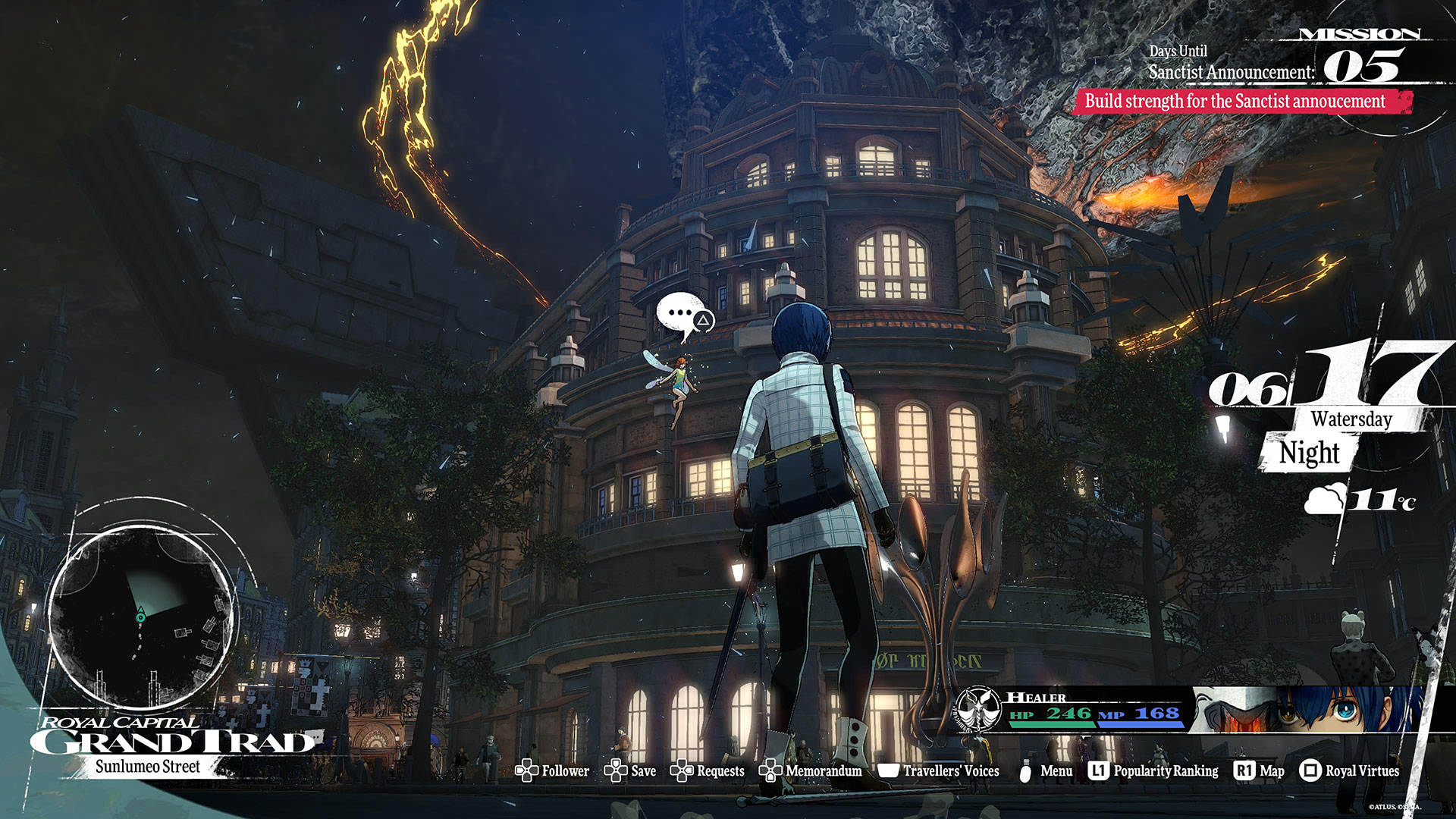
Combat in Metaphor: ReFantazio is more akin to the Shin Megami Tensei series than it is the Persona series, featuring the Press Turn system. Successfully hitting a weakness or landing a critical hit consumes half a turn instead of a full turn, and passing to the next character also consumes half a turn. There are also Synthesis Skills, which use two turns since they’re generally more powerful and require two people. This means if one of the two is disabled through a status ailment, you won’t be able to use the Synthesis Skill. These skills aren’t exclusively offensive, and they really add a strategic element to combat. It’s a pretty robust system for turn-based combat, and I often found myself thinking and resetting battles.
As for the real-time combat when you’re running around a dungeon, there are a few things to talk about. If you’re significantly stronger than the enemies, you’ll be able to kill them without engaging in turn-based combat. This feels much like the hack-and-slash in modern Persona games, except doing so doesn’t automatically trigger the fight. If you engage an enemy that’s equal or of higher difficulty, you’ll have to land a few blows before getting the opportunity to start the turn-based combat. If you’re successful in landing that string of attacks before switching to turn-based combat, you’ll gain an advantage when the fight starts. This is generally a powerful attack that will take the enemies down to half health or somewhere in that range. The same is true if the enemy is able to hit you first; they’ll get an entire round before it’s your turn, and sometimes that round can be disastrous.
There’s an interesting tradeoff between the two combat types. If you’re looking to grind, it’s actually efficient to run around and kill enemies you’re significantly stronger than, defeating them with one or two attacks through the real-time system, instead of hunting down enemies you need to beat in turn-based combat. Even though you’re getting significantly less XP killing those enemies, it’s much quicker, and you don’t have to expend valuable MP to do so. Like Persona games, Metaphor: ReFantazio isn’t very generous when it comes to MP recovery. Items are limited, and while there are some skills that give passive MP regeneration, they come later in the game.
If you plan on doing all of the game’s side quests and bounty hunts, you’ll endure what is arguably the weakest part of the game: dungeon design. Some of the main story dungeons have unique mechanics, like an interesting stealth section or bosses that must be killed within a certain number of turns, but overall it doesn’t match the level of creativity found in Persona 5. Unfortunately, the side content is even worse, as those dungeons are as boring and bland as possible—they’re reminiscent of PlayStation 2-era games like .Hack. But hey, if you’re a fan of Etrian Odyssey, there are some fantastic Easter eggs waiting for you in one section of Metaphor: ReFantazio.
Heart of Fate

As someone who loves the Persona series and recently enjoyed Persona 3 Reload, I found it hard not to compare the experiences while adventuring in Euchronia. Throughout my playthrough, I tried to come up with an analogy to explain to Persona players how Metaphor: ReFantazio feels. It’s easy to say it’s simply an evolution of the Persona and Shin Megami Tensei formulas, with numerous quality-of-life features, a fantasy setting, and a more compelling class system with Archetypes. However, I think this is a better way of explaining it. You can get a burger from a fast food restaurant, like McDonald’s, Burger King, Wendy’s, or even In-n-Out. But you can also go to something a bit fancier, like Shake Shack or The Habit. Then, there are premium gourmet burgers from fine dining restaurants. Every one of these burgers has the same core ingredients: a meat patty, a bun, and some toppings like lettuce, tomato, and cheese. But these hamburgers can taste significantly different from one another.
Metaphor: ReFantazio uses similar ingredients to a Persona game, but they’re prepared differently and in a way that may taste worse for some players. For others, it’ll taste a lot better because it ditches the high school setting for a high fantasy world with a diverse cast and equally varied personalities. While Persona games have always touched on mature themes, they did so through the lens of young adults. Metaphor: ReFantazio’s characters bring a much different experience and story than those of a Persona game, just because each party member comes from a different background.
More importantly, though, Metaphor: ReFantazio tells a story that is not only relatable but also deliberately direct at times. It tries to instill hope that humankind can and should be better, teaching that everyday actions can go a long way toward making fantasy a reality. The game manages to do this through a cohesive, well-written, well-acted, and memorable story that culminates with an excellent ending and epilogue sequence.
Metaphor: ReFantazio is one of the most satisfying and fulfilling gaming experiences I’ve had in years. It successfully builds upon the foundations laid by the Persona and Shin Megami Tensei series while introducing fresh mechanics and a compelling narrative that stands on its own. If you’re a fan of turn-based JRPGs, rich storytelling, and deep character development, this game is a must-play. But I do have one complaint: who decided that calling a character Hulkenberg would be a good idea?
Metaphor: ReFantazio’s official release date is October 11, 2024 on PlayStation 4, PlayStation 5, Xbox Series X|S, and PC. This review is based on a retail code provided by Atlus. While FullCleared has affiliate partnerships, these do not influence our editorial content. We may, however, earn commissions for products purchased via affiliate links.


